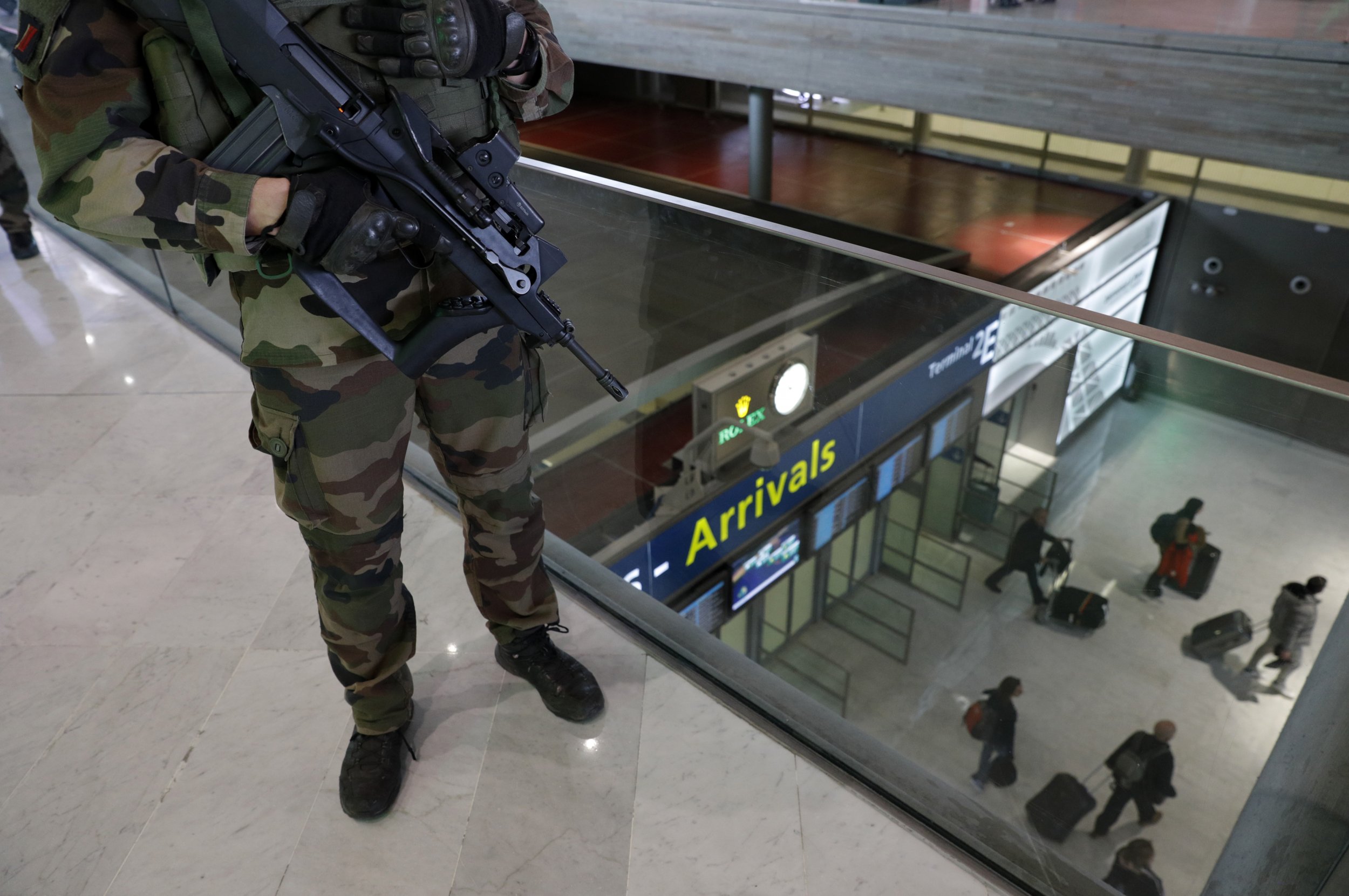
An often repeated mantra in the corporate world, is to "work smarter and not harder." The idea is that solving problems is better done through agile, intelligent and prioritized means rather than by throwing huge amounts of poorly targeted resources at a problem.
The problem with France's current " state of emergency," in force since the November 13 Paris attacks, and extended several times since, is that it is a prime example of a state working harder and not smarter. The deployment of over 10,000 troops to man and patrol the Parisian region alone demonstrates a somewhat misguided way of responding to a crisis caused by a relatively small number of people.
In no way am I downplaying the terrible atrocities carried out in the French capital, when a group of Islamist gunmen and suicide bombers killed at least 130 people, but we should critically analyze the response of a large, well-resourced European state to a particular set of problems. The working hard and not smart analogy also, unfortunately, highlights the broader and more deep rooted issues with French intelligence and law enforcement that enable groups and networks of individuals to plan and conduct such atrocities in a European capital.
French authorities are remarkably lacking in the agility required to deal with specific terror threats. During my extensive field research in French cities, a common complaint in the poor, minority heavy areas, such as the suburbs of Paris and Lyon, where many French Muslims live—and which are now under the spotlight—is that French police are either completely absent from the landscape or come in heavy handed in a very confrontational manner. It should be noted that the catalyst for the 2005 riots, the cause of the last state of emergency to be declared in France, was the death of two youths fleeing police identity checks in the Clichy-sous-Bois suburb of Paris.
This highlights a key failing of the current administration in being agile enough to collect and use specific intelligence in a fight against extremist threats. The fact that the neighbours of the Kouachi brothers, who carried out a shooting on the offices of the Charlie Hebdo magazine last January, discovered their cache of arms before the brothers carried out the attack, and felt unable to bring the information to the police is particularly telling.
Agile intelligence and policing is important in tackling root causes of the terror threat in France that the current state of emergency will not combat. Well-established organized crime networks exist across France and into Belgium. Through these, militant and criminal groups manage to easily acquire military grade weapons like the AK47s used on November 13. The use of such weapons in crimes from minor store robberies, all the way though to gangland assassinations is relatively commonplace in France, to the point where the mayor of Marseille's 15th and 16th districts, known for their high-rise housing estates and drugs trade, called for the army to be deployed in 2012 as the only force with sufficient firepower to take on such well-armed criminals.
The Kouachi brothers and several of those involved in the November 13 attacks have been known in the past to authorities for their relatively minor roles in criminality and the drugs trade. Again, over the long term the state has failed to work "smart" to tackle these underlying structural forms of economic and social marginalization that create such dangerous access to weapons. Here, the inability of the state to fight blatant discrimination in areas such as the labour market against those of minority ethnic status is a significant problem. In addition, the state's lack of will in regenerating and improving the housing standards and supply in the suburban housing estates present in French cities.
Both Sarkozy and Hollande have tried and so far failed to tackle France's static and discriminatory labour market and domestic economy. As the French sociologist Loic Wacquant, author of Punishing the Poor and Prisons of Poverty, has pointed out, nowhere in Europe is there a system where the gap between "insiders" and "outsiders" is so notable. More importantly, nowhere is this gap more profoundly felt than by those of minority ethnic status, whether Muslim or not, who are much more likely than white French peers with the same qualifications to be unemployed. Indeed, in the poor suburbs of cities like Paris, Lyon and Marseille, youth unemployment can run as high as 40 percent and above.
These are the areas that government resources should be targeted at rather than the renewal of the state of emergency. But as these are much more medium to long term goals, which neither the left or right have managed to make headway on in the past two to three decades, it remains to be seen how this impasse can be tackled. In the current context, given Hollande's status as a beleaguered and unpopular president, who struggles to project either legitimacy or charisma, it is unclear how the French state can begin to work "smarter," at a time when doing so is so deeply important.
Joseph Downing is a Fellow of the London School of Economics.
Uncommon Knowledge
Newsweek is committed to challenging conventional wisdom and finding connections in the search for common ground.
Newsweek is committed to challenging conventional wisdom and finding connections in the search for common ground.
About the writer
To read how Newsweek uses AI as a newsroom tool, Click here.








